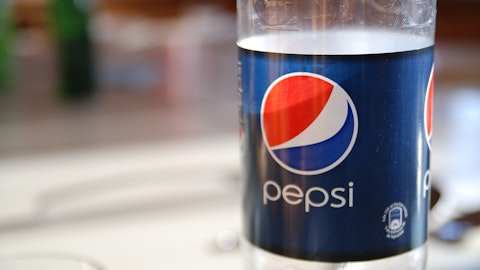For our latest stock showdown, we turn our attention to the fast-food industry and pit two titans of burgers and chickens on the go against each other, McDonald’s Corporation (NYSE:MCD) and Yum! Brands, Inc. (NYSE:YUM), in order to conclude which of the two make the best investment.
McDonald’s Corporation (NYSE:MCD), founded in 1955, is the world’s largest fast-food chain, serving more than 100 countries at more than 36,000 locations and is probably among one of the world’s most famous brands. On the exchange, the $92.00 billion market cap company has returned 3.3% year-to-date and is down 4.6% during the last year. One of its main competitors is of course Yum! Brands, Inc. (NYSE:YUM), which runs Taco Bell, KFC, Pizza Hut, and WingStreet. Yum! Brands, which was spun-off from PepsiCo, Inc. (NYSE:PEP) in 1997 operates roughly 41,000 restaurants in more than 125 countries around the globe and has impressed on the stock exchange this year, with a return of 26.6% year-to-date, while over the past year the return is a little more modest at 12.9%, though still better than McDonald’s Corporation. But let’s leave those numbers for a while and instead turn our attention to what the hedge funds we track think about the two stocks. By going through 13F filings, we found that 89 of the 730 actively filing funds we tracked had stakes in McDonald’s Corporation on March 31, a 10.2% increase from the 75 funds who had holdings in McDonald’s at the end of 2014. For Yum! The same numbers were 45 funds as of March 31, a slight increase from the 44 funds who held it three months earlier.

In the eyes of most traders, hedge funds are assumed to be underperforming, old investment tools of the past. While there are more than 8000 funds in operation at present, hedge fund experts at Insider Monkey look at the aristocrats of this group, around 700 funds. Contrary to popular belief Insider Monkey’s research revealed that hedge funds underperformed in recent years because of their short positions as well as the huge fees that they charge. Hedge funds managed to outperform the market on the long side of their portfolio. In fact, the 15 most popular small-cap stocks among hedge funds returned 145% since the end of August 2012 and beat the S&P 500 Index by 85 percentage points (see the details here).
McDonald’s Corporation indicated to the market earlier in April that it would close about 700 stores around the world this year. A shifting in customer tastes and food safety concerns is affecting the demand and hence the sales for the company. 350 of those closures were already announced and the additional 350 are under-performing restaurants in the U.S, China, and Japan. That McDonald’s is closing under-performing restaurants isn’t that uncommon and the impact in the total number of restaurants is usually maintained, since new openings offset the closures. However, this year McDonald’s seems to be closing far more restaurants than it will open on the U.S market, indicating something of a paradigm shift that analysts understand as McDonald’s now admitting its problems in the U.S market. As a part of the same restructuring plan, McDonald’s, who are hunting cost cuts, announced that it would sell all 413 of its restaurants in Taiwan to franchise takers.
Yum! Brands on the other hand said that its expansion in China hasn’t yet come to an end and is planning new openings. A chicken supplier scandal in China during the last year has however hurt the KFC brand there, and Yum! Brands is still recovering from the incident. In the U.S, Yum! Brands, and particularly KFC, are struggling with lower sales and a weaker demand as well. As if that wasn’t enough, the avian flu among chickens in the U.S threatens to increase the price of chicken, hurting the business even further through increased costs. Analysts are saying that one major reason for the falling sales is poor marketing from KFC and Pizza Hut, since the markets for chicken and pizza aren’t particularly weak. A future driver for Yum! Brands stock is expected to be the growth in China and in Chinese malls.
One of the major investors in Yum! Brands among those we track was hedge fund manager Dan Loeb representing Third Point, who took a stake in Yum! Brands of 3.3 million shares during the first quarter. In McDonald’s, a major shareholder was Southeastern Asset Management led by Mason Hawkins, with its 10.85 million shares. The aggregate holdings by the hedge funds we track increased by 81.8% in Yum! Brands to $1.5 billion during the first quarter, while for McDonald’s the increase was 32.6% to $6.8 billion.
we also track insider activity at Insider Monkey, given its statistical significance in pinpointing good potential buying opportunities when we look at insider purchases. There have been a number of insider sales of McDonald’s’ shares, with Corporate Executive VP, Supply Chain Jose Armario selling 10,000 shares in May. Senior Vice President and Chief Public Affairs at Yum! Brands Jonathan Blum made multiple sales of shares in 2015, over 13,000 in all.
To conclude, If McDonald’s manages to go through its cost reduction program and find a way to attract customers again, the shares do indeed have upside, however in the meanwhile, Yum! Brands seems like the better pick, with stronger present growth and more immediate potential for more.
Winner: Yum Brands! (YUM)
Disclosure: None





